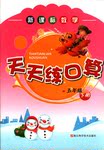题目内容
16.As(74)neighershe nor her husband smoked,Mrs.Trench was surprised to see cigarette ash on her doorstep as she entered the house.When she opened the living-room door,she was astonished to see a strange man fast(75)asleepin an armchair!Taking care not to disturb him,Mrs.Trench left the house immediately.She called a taxi and went straight to the police station.When she got there,she lost no time to explain(76)whathad happened and added that the man(77)musthave got into the house(78)through an open window.Mrs.Trench returned home(79)ina police car together with two policemen.But it was too late:the man had disappeared.(80)hurryinghurry upstairs,she went to her dressing-table.She smiled(81)withrelief when she saw that the only thing the man had taken was an imitation diamond necklace(82)whichwas almost(83)worthless.分析 本文讲述了Mrs.Trench 回家时发现了一个陌生人在她家里,坐在沙发上睡着了,她立刻意识到是小偷从开着的窗户里爬进来了.Mrs.Trench 立刻去了警察局,带了两名警察回来,遗憾的是陌生人已经离开了,Mrs.Trench 跑上楼,打开梳妆台,当她发现小偷拿走的只是一个不值钱的人造钻石时,她欣慰的笑了.
解答 74.neigher;考查连词,neither…nor…指"两者都不";本句指她和她丈夫都不抽烟.
75.asleep; 分析上下文句意可知此处是指"对方是在椅子上睡着了",故答案为asleep.
76.what;考查宾语从句,分析句子结构可知此处是一个宾语从句,从句缺少主语,故用疑问代词what作宾语从句的主语.
77.must;考查情态动词,结合上下文分析这是对过去情况的推测,must have done表示"过去一定做了某事".
78.through;考查介词,结合上文分析,此处意为"通过一扇打开的窗户",through指穿过,通过.
79.in;考查介词,结合上下文分析此处用in,指"在…里面".
80.hurrying;考查分词做状语,因为动词hurry与主语she构成主动关系,所以使用现在分词形式作主语.
81.with;考查介词,此处介词with表示原因,意为"她欣慰地笑了".
82.which;考查定语从句,关系代词 which指代diamond necklace在从句中做主语.
83.worthless;考查形容词,结合上下文分析,此处说明他拿走的是假的宝石项链,那是不值钱的,故用形容词worthless.
点评 答题时注意句子中人称和数是否一致,时态是否一致.各种词性之间的区别以及一些常用句型,固定短语的应用.平时应注重积累基础知识,熟记一些句型及惯用结构.解题前先细读短文,完成以后再阅读短文检查是否语意通顺,符合逻辑.

 天天练口算系列答案
天天练口算系列答案| A. | slowed | B. | lost | C. | missed | D. | walked |
| A. | produced | B. | split | C. | increased | D. | harvested |
| A. | Go | B. | Going | C. | Gone | D. | To go |
-Don't feel blue.______.( )
| A. | All that glitters is not gold | |
| B. | All roads lead to Rome | |
| C. | All good things come to an end | |
| D. | A still tongue makes a wise head |
| A. | to prevent,to live | B. | to prevent,from living | ||
| C. | to preventing,to live | D. | to preventing,from living |
| A. | as | B. | before | C. | since | D. | when |